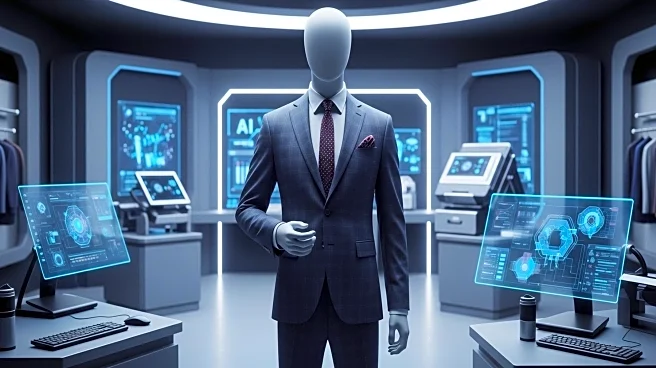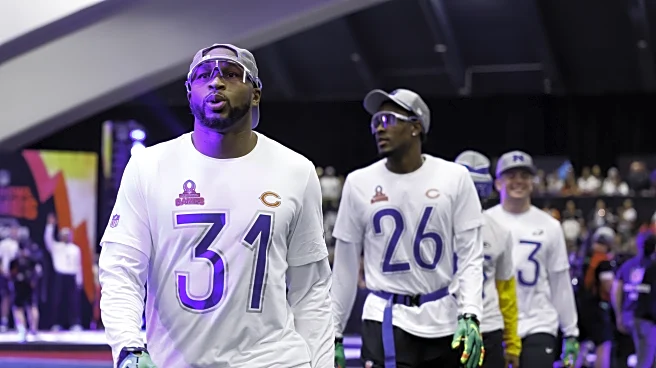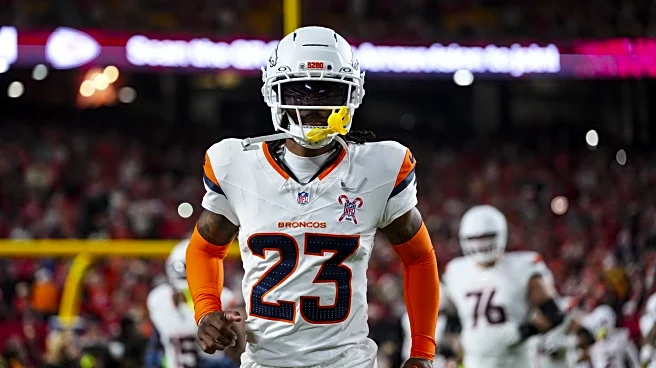What's Happening?
David Gandy, a prominent male model, has expressed concerns about the impact of artificial intelligence (AI) on the fashion industry. Speaking ahead of London Fashion Week, Gandy highlighted the existential threat posed by AI-generated models, which can create human-like images in seconds. He, along with over 2,000 professional models, is calling on the government to protect individuals' rights against unauthorized use of their likeness. Gandy fears that without regulation, AI models could damage the industry, affecting not only models but also photographers, hairdressers, and makeup artists. He emphasizes the need for regulation to preserve the artistry involved in fashion imagery.
Why It's Important?
The rise of AI in the fashion industry could lead to significant changes in employment and creative processes. If AI-generated models become prevalent, it could reduce demand for human models and the professionals who support them, such as photographers and stylists. This shift could impact the livelihoods of many individuals in the industry and alter the traditional methods of creating fashion campaigns. The call for regulation reflects broader concerns about AI's ability to replicate human likenesses, raising ethical questions about privacy and intellectual property rights. Protecting these rights is crucial to maintaining the integrity and sustainability of the fashion industry.
What's Next?
The government is being urged to consider new regulations to address the challenges posed by AI in the fashion industry. This may involve reviewing existing laws related to identity protection and exploring additional measures to safeguard individuals' likenesses. Stakeholders in the fashion industry, including models and creative professionals, are likely to continue advocating for these changes. The outcome of these discussions could set precedents for how AI is regulated in other creative fields, influencing future policy decisions.
Beyond the Headlines
The use of AI in fashion raises deeper questions about the role of technology in creative industries. It challenges traditional notions of artistry and craftsmanship, potentially leading to a cultural shift in how fashion is produced and consumed. The ethical implications of AI-generated imagery, particularly concerning mental health and body image, are also significant. As AI technology advances, society will need to grapple with these issues to ensure that technological progress does not come at the expense of human creativity and well-being.










